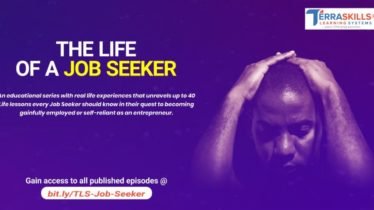Experiential Learning: Concept and Application
Experiential learning is what our educational systems lack, but it is what makes the apprenticeship system a viable learning option. Kolb’s theory of experiential learning demonstrates this. Since learning occurs through exploration and active involvement, Kolb believes that experience is important in the creation of knowledge.
Kolb believes that learning is;
“the process whereby knowledge is created through the transformation of experience”
Kolb believes that learners should ideally progress through the stages to complete a cycle and, as a result, transform their experiences into knowledge. Kolb’s Learning Cycle is based on Jean Piaget’s thought about how learners create knowledge through interactions with the environment.

Concrete experience
According to Kolb, the concrete experience can be either new or a re-imagined version of what has already occurred. Learners must participate in an activity during the concrete experience learning phase, which is where hands-on training comes in. This is consistent with Kolb’s belief that learning is participation. When I engage in the learning activity and repeat the task, I find that I understand better and can replicate learning when necessary. This is because to gain new knowledge, we must actively participate in the task. This is why you find it difficult to forget the task you’re working on but easy to forget the theory you learned in class.
Reflective observation
Learners’ ability to reflect on the task that was completed during the concrete experience stage allows them to ask questions and discuss the experiences of others. This is critical for learning. Because the learners may interpret what they have been taught differently, they must discuss their experiences. This will improve comprehension and reinforce learning.
Abstract conceptualisation
Learner discussion during the reflective observation stage prepares the ground for abstract conceptualization. Learners move from reflective observation to abstract conceptualization in an attempt to draw conclusions from their experiences by reflecting on prior knowledge. The abstract conceptualization stage allows learners to interpret their experiences and compare them to their understanding of previously learned concepts, thereby changing their conclusions based on pre-existing ideas.
Active Experimentation
Learners return to participating in previously learned tasks at this stage. Returning to the task at hand, learners are better prepared to complete it. This is because they apply their conclusions to the new experience. They make predictions, analyse tasks, and plan based on newly acquired knowledge.
It’s similar to learning to drive; you’re first taught traffic rules, road signs, and so on, then you’re shown how to drive, then you drive with your instructor, and finally, you drive yourself. However, if you complete these steps without driving yourself (active experimentation) for an extended period, you will be unable to drive.
Because learning is intended for knowledge and knowledge for the application of abstract concepts to new situations; the experiential learning cycle applies to all types of learning.
For this and much more Information relating to employability skills, employment opportunities, career advancement, and entrepreneurship development; Join our Telegram and WhatsApp groups, and also follow us on Instagram, Twitter and Facebook.




May 21, 2021 @ 8:16 am
Experiential Learning is a branch of Practical Education, which is a multidisciplinary educational ideology with a multidisciplinary approach to learning.
How Learning can be Improved - Terraskills
June 9, 2021 @ 7:32 pm
[…] believes that learners should ideally progress through the stages to complete a cycle and, as a result, transform their experiences into […]